Learn to Manage Your Attention and Managing Time Will Take Care of Itself

A key habit I’ve noticed in successful people repeatedly, is that they are ruthless in managing what they pay attention to.
Sources of distraction today are plentiful and with everything becoming digitized, are only exponentially increasing. I’m sorry to be crass, but your mind is like an egg, ripe for fertilization and every ping, push notification, email, call, text…is yet one more opportunity for your mind to be literally penetrated.
We have a dozen social networks that are so woven into the fabric of our daily lives that using them is as habitual as brushing our teeth. There are millions of websites ranging from mild entertainment to intellectual porn (articles like this, that make us feel we’re doing something when we’re just consuming). Our perpetual exposure to digital stimuli has gone far beyond what evolution intended.
Walk through the airport, a mall, a grocery store or even a bar on a Saturday night and it’s not uncommon to see people looking at their phones.
- If we’re at dinner with one other person and they go to the bathroom, we tend to check our phones.
- If we’re in line anywhere, we look at our phones
- The kids at the Starbucks near my parent’s house text each other from across the store.
This behavior has become so normal to us that we’ve more or less stopped considering the potential negative consequences. But after numerous conversations with educators, psychologists, and social scientists, I’m quite convinced that distraction is at the root of many of our personal and professional problems.
1. Distraction Kills Your Ability to be Present
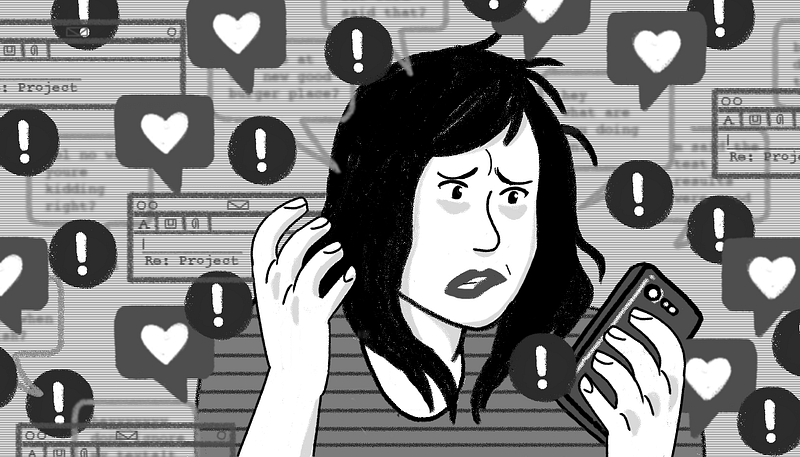
A distracted mind is not a present mind. We ruminate on the past and worry about the future. As a result, we become more anxious and more depressed. Sources of distraction not only do long-term harm to our cognitive capability but they also cause mental health issues.
2. Distraction Leads to Dopamine Surges
Fact: most of the apps you use on a daily basis are designed to be habit forming and addicting. The best behavior scientists in the world have worked with software developers to make sure that you get hooked on these apps. The not so harmless byproduct is the dopamine surges that occur. With every notification, email check, instant messages, or match on a dating app, you get a shot of dopamine.
Because the satisfaction doesn’t last, you have to keep coming back for more. If you want to be happier and more successful, turn things off. When you turn things off you start to develop a more mindful and deliberate relationship with technology. You control it rather than having it control you.
3. Distraction Causes Excessive Comparison
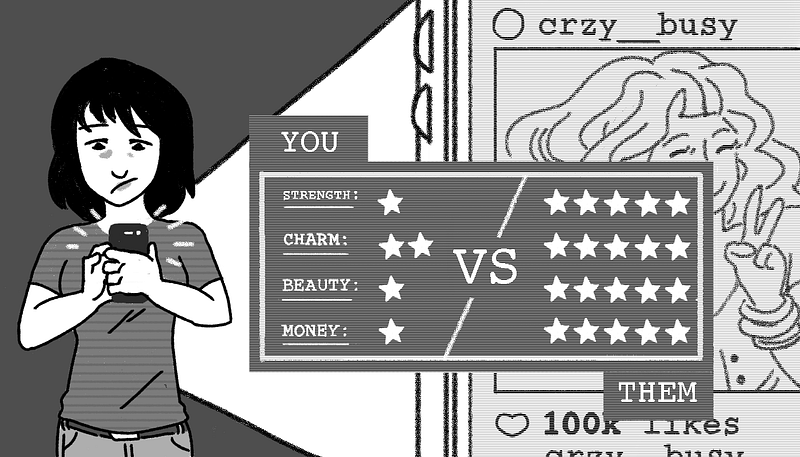
On social media, we present highly curated versions of our lives. If you looked at my Instagram feed for the last few weeks you’d think that I do nothing but snowboard, read books and bask in the warm Southern California weather. When we’re on social media, we start comparing our lives to the lives of other people. And as a result, our sense of satisfaction with our own lives goes down. Every single day when you scroll through your newsfeed:
- You’ll find someone who has accomplished something more impressive
- You’ll see someone who has a relationship that you don’t
- You’ll find someone who makes more money than you or has a bigger audience
- You’ll find someone who is on what seems like an amazing vacation, while you’re stuck in your damn cubicle
The list goes on and on. Of course, what you don’t see is that this is all a highly curated illusion that blinds you from the truth.
A while back I interviewed Justine Musk about the psychology of visionaries. Many young ambitious entrepreneurs think they want to be like Elon Musk. But as Justine said to me “People don’t really see what goes into these kinds of accomplishments. They literally come at the cost of everything else in your life.”
We tend to make assumptions based on what we see, without considering everything that’s hidden from us. We compare ourselves to everybody else and contribute to our own misery and suffering.
Comparison might inspire you to shop today for shit you don’t need to impress people you don’t care about. Compare less and create more.
Enjoying this essay? My newsletter could be a good fit for you. You’ll receive a weekly article like this as well as immediate access to a swipe file, where you’ll get my best tips on honing your daily habits, productivity, and creativity. I’ll also send you a guide on finding the courage to carve your own path, rather than following someone else’s footsteps. Get it here.
4. Distraction Prevents Connection
When we’re distracted, constantly checking our phones, while we’re with another person, we might as well not be there. Our social relationships are one of the greatest predictors of our happiness, and distraction gets in the way of our ability to connect.
- Try turning off your phone when you’re on a date. You’ll be amazed at how much more attentive and charismatic you come across.
- Turn off your phone when you’re in the presence of close friends. The depth of your conversations will be far greater.
- Turn off your phone when you’re spending time with your kids. If there’s anything that I’ve noticed from hanging out with my friend’s kids, the one thing they want more than anything is attention.
We’ve talked about the downsides of distraction, so let’s look at something far more positive, powerful, and constructive.
Cultivating and Protecting Your Attention and Focus
If you can learn to manage your attention, managing time will not only take care of itself, you’ll have a massive competitive advantage over most people. As Cal Newport has said Deep Work, the ability to focus on a cognitively demanding task over an extended period of time is the equivalent of a 21st-century superpower. Managing your attention plays a major role in becoming a prolific writer and a voracious reader.
Most people who claim to have a time management problem have an attention management problem. Many of the same people I hear lamenting about their lack of time update their Facebook status multiple times a day and post dozens of pictures on Instagram. 10 minutes here and there all eventually adds up.
1. The Attention Currency Paradox
Think of it this way. Imagine your attention as a currency. Throughout the day you can spend it on things that are expensive and things that are not.
- Deep work, reading, writing and other meaningful activities require more of your attention units, but cost you less. (inexpensive)
- On the flip side shallow work like updating your FB status or uploading pictures to Instagram require far less of your attention, but they cost you more of it. (expensive)
This is the strange paradox of attention as a currency. Whatever requires less of your attention costs more in terms of cognitive benefit, what requires more costs you less.
The little things we do repeatedly lead to big changes in our lives. All of those little distractions add up to becoming the cognitive equivalent of an athlete who smokes.
Managing your attention is a skill. Like any other skill, it gets developed through practice. So how exactly do you practice managing your attention? Fortunately, everyday life provides many opportunities to do so.
2. Start Your Day Without Devices
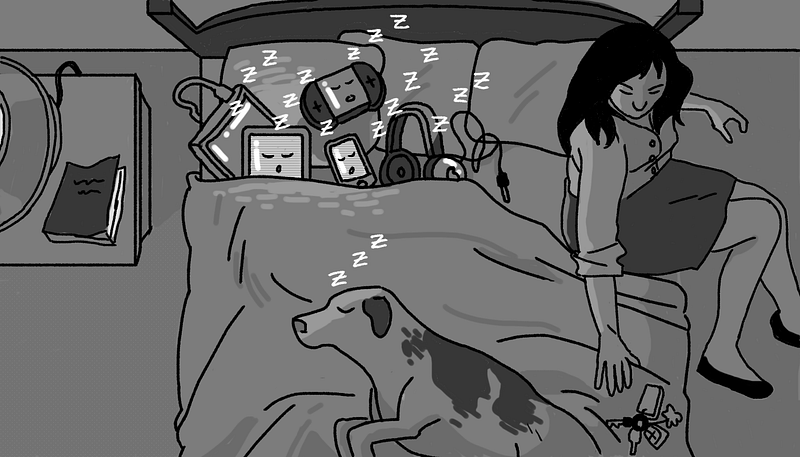
Starting your day on the internet damages your brain and by starting your day with devices you damage your attention span. This is why I start the day by reading physical books and writing in a notebook. Nobody changed the world by checking email so why on earth would you start your day by doing it.
3. Focus on your Highest Value Activities
No matter what it is we’re trying to accomplish, whether it’s writing a book, generating revenue for a company or losing weight, there are only a handful of activities that move the needle. When we neglect these activities, we end up being busy but we’re not productive. Productivity is not about the amount of time you spend on something, but it’s about the quality of the time you spend on something. And the quality of the time is almost entirely determined by one thing, your ability to manage your attention. Professionals manage their attention. Amateurs get defeated by resistance by giving into distraction.
4. Avoid Multitasking and Task Switching
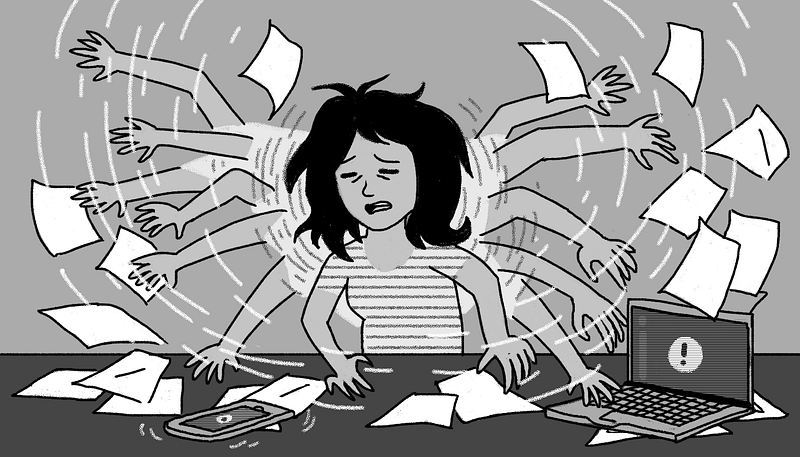
It’s been said over and over. Multitasking not only diminishes your productivity. It damages your attention span. Unfortunately, most people count on willpower to avoid multitasking. But the environment is always stronger than willpower. So if you have a dozen tabs open, a bunch of notifications on, and your phone in the room, you’re already working at a self-imposed handicap. You might consider your quick peek at your inbox, Instagram feed or twitter harmless.
That quick check introduces a new target for your attention. Even worse, by seeing message that you cannot deal with at the moment, (which is almost always the case), you’ll be forced to turn back to the primary task with a secondary task left unfinished — Cal Newport
One focused hour of uninterrupted creation will do far more for you than 8 hours of perpetually interrupted work.
5. Downtime
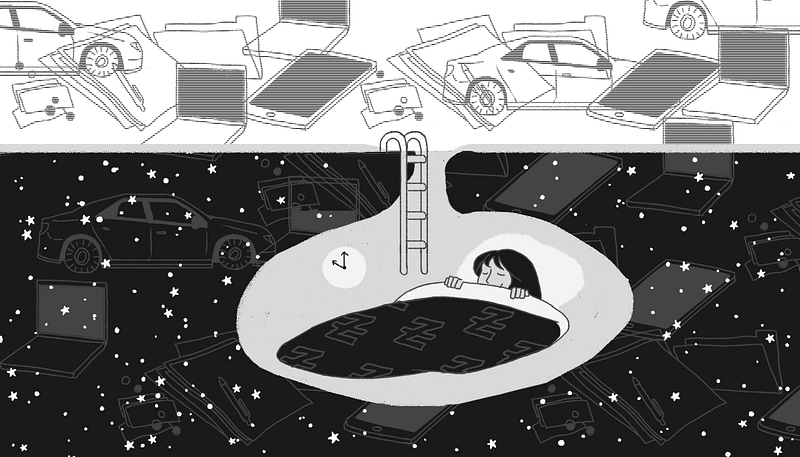
If there’s one thing that we don’t place nearly enough value on, it’s downtime. In fact most down time isn’t really down time because we take a break and check email or social media.
If you go for a walk but are on Twitter the whole time, the value of the walk goes down. If you immerse yourself in nature and feel the need to document that experience on Instagram the benefits of being in nature diminish.
The unconscious mind is doing a great deal of work during down time. This is why so many we have so many eureka moments when we’re in the shower or away from our work.
6. Plan Your Days the Night Before
When you plan your days the night before, you not only increase productivity, you also avoid decision fatigue and preserve your willpower. Not all hours of the day are created equal. Your attention span is going to be highest during certain parts of the day, which is why I always recommend spending the first hour of the day on activities that add meaning and value to your life.
7. Know Your Essential Priorities
If you want to get better at managing your attention you have to learn to say no to everything that’s not aligned with your essential priorities. When looked at my own creative and working process, I realized 3 activities created a disproportionate amount of value in my business
- Writing: Writing allows me to share my ideas with the world in the form of books and articles. Articles increase the size of our email list and expose more people to my work. The size of the email list has a direct impact on the sales of books.
- Interviews: I do these for the podcast. The podcast creates revenue through sponsorship.
- Speaking at conferences and companies directly contributes to my bottom line.
The value of nearly everything else that I do pales in comparison to these 3 activities. I assumed the value of my time was what I got paid for an hour speech. After that I stopped doing all of the following activities:
- I usually hire someone from TaskRabbit. What takes them an hour would take me all day. And if it’s going to take me all day, I’m not just going to lose that time, but more time because of how pissed off I am about the whole experience. That’s a high opportunity cost, considering your state of mind is one of your most priceless assets.
- Shopping: These days I always make an appointment with a personal stylist at Nordstrom. I tell them what I need. They get a room read and I’m out of there in 30 minutes.
This one skill, managing your attention will do more for your trajectory than any life hack. Not just that but saving your attention for what matters to you will also make you happier and fulfilled. Start today., You’ll be surprised by how quickly things can change.
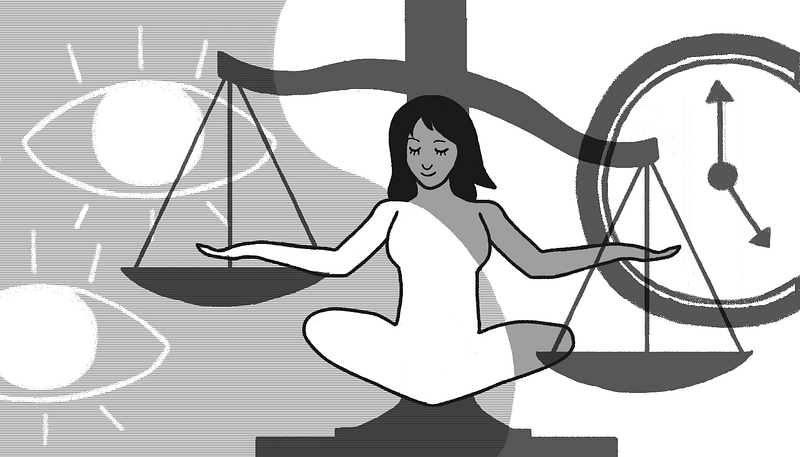
Enjoy this article? Sign up for my newsletter to receive a weekly article like this one. You’ll also get immediate access to a swipe file, where you’ll get my best tips on honing your productivity & creativity, as well as a guide on finding the courage to carve your own path, rather than following someone else’s footsteps. Sign up here.
This article was originally published on Unmistakable Creative.
